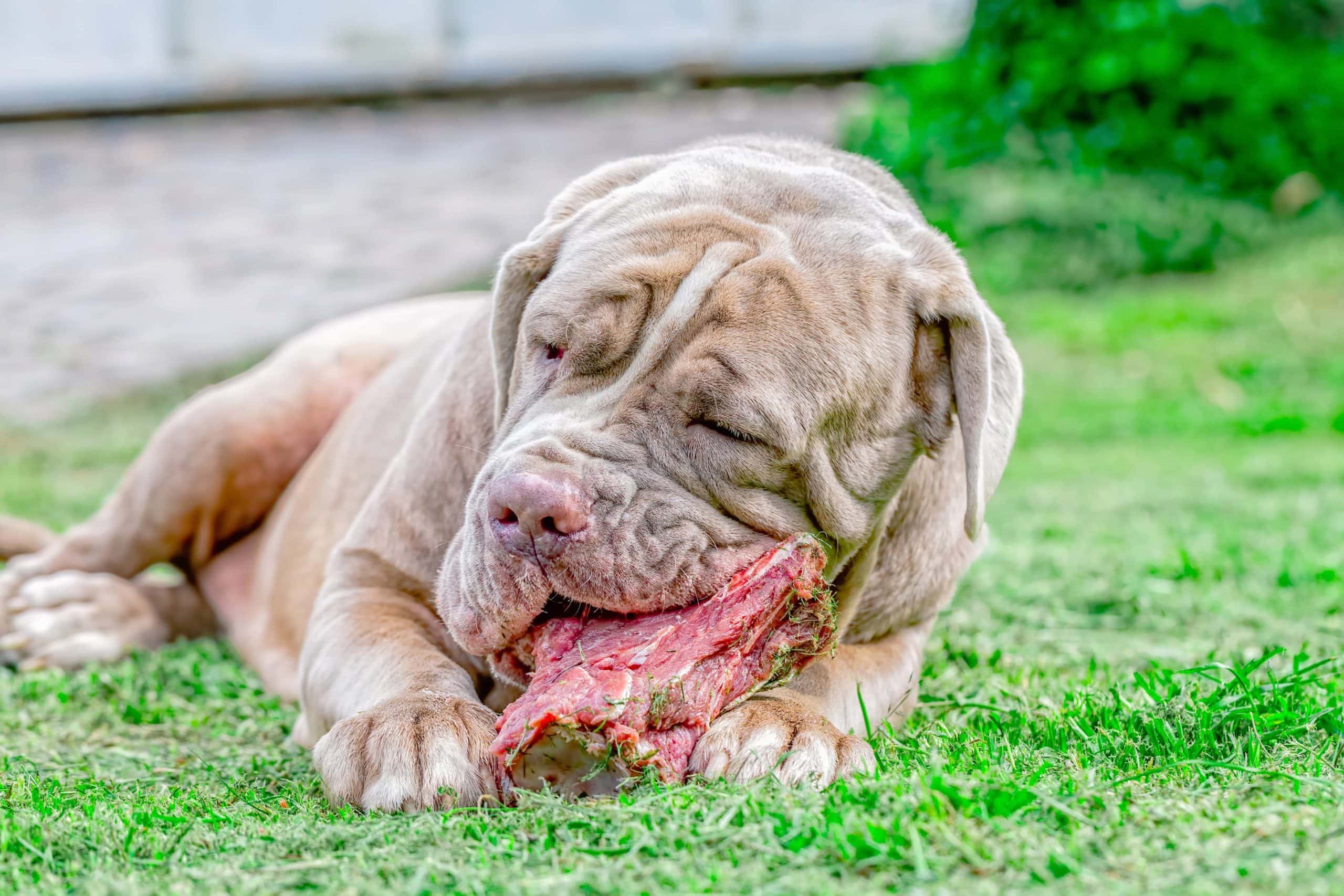How Is Steak Good For Dogs?
Steak, which can be made from a variety of cuts of meat from a cow, is chock full of essential fatty acids that keep your pup moving and healthy.
Beef is often an ingredient in many dog foods and treats, so feeding your pup a hearty steak on occasion can be a good boost of energy for your dog.
You should, however, forgo butter and seasonings on your dog’s steak. If your pup got ahold of a steak made for humans, they may have some stomach upset due to these additions.
Is Steak Bad for My Dog?
There are some ways that steak can be harmful to your dog.

How to Prepare Steak for Your Dog?
Can dogs eat steak? Yes, but in moderation. Just follow a simple procedure below.
Make your dog’s steak as nutritious as possible by cooking it in the oven or on the grill.
Pat the steak dry and add oil to the cooking pan. When the pan is hot, cook the steak in the center for approx. 5 mins, then flip over for another 5 mins.
The USDA recommends cooking ground beef at a minimum 160°F to reduce the risk of salmonella poisoning. If you have a meat thermometer, take care not to overcook the steak.
Let the steak cool before serving it to your dog.
It’s very important not to serve your pet a whole steak.
This is because dogs don’t have a natural need to chew meat, and it’s better not to put too much stress on their jaw when eating. Furthermore, their digestive system won’t get overloaded with smaller chunks.
Cut the steak into smaller pieces before serving it up! If you’re serving your dog a small portion of steak, use it as a food topping.
For a regular meal, feed your dog steak that is well-cooked and chopped into small chunks. Remove bones and excess fat because they are hard to digest, and bones could break the dog’s teeth.
You could also make a treat for your dog! Simply use the scraps from making a stew, but without any seasoning.
Can Dogs Eat Steak? (Raw or Cooked)
New puppy owners often have questions about what they should feed their pups. One of the most common questions we get asked is “Can my dog eat leftover steak bones?”
There is some debate from the experts about whether or not dogs should be allowed to eat bones. One view is that dogs ate bones in the wild and there is no harm to the animal eating them, provided they are raw.
The other view point believes you should never give dogs any bones cooked, raw or otherwise, as they could potentially cause more harm than good.
Many people who feed their dogs a raw diet, sometimes called BARF (Bones and Raw Food), claim bones with meat and some fat left on them are safe for dogs. Why? Because they are easily digestible and will not splinter like cooked bones. Some of the popular types of bones fed on the raw diet are beef tails or necks from poultry and are usually available from your local butcher. One disadvantage about raw bones is that they can carry bacteria like salmonella or e-coli and can spoil in a few days if not eaten.
Avoid any bones that are already cut into smaller pieces as they pose a more immediate choking hazard. Be aware that any bone may cause a digestive upset in a dog.
Cooked, brittle bones are more likely to splinter. This may cause fractured teeth and possible perforation of the intestine or throat, either on the way down or on the way back up, if the dog vomits.
Veterinarians also report dogs eating bones run the risk of needing surgery to remove obstructions in the intestines. Any bone should only be given under supervision so you can monitor if the bone is breaking into dangerously small pieces.
If this happens you can ask the dog for the rest of the bone (because you’ve already taught them the “give” command, right?). Finding an alternative to a potentially hazardous situation is always in your pet’s best interest rather than leaving it to chance. If your dog gets into difficulty while eating, we recommend taking them to your local vet as soon as possible.
AKC is a participant in affiliate advertising programs designed to provide a means for sites to earn advertising fees by advertising and linking to akc.org. If you purchase a product through this article, we may receive a portion of the sale.